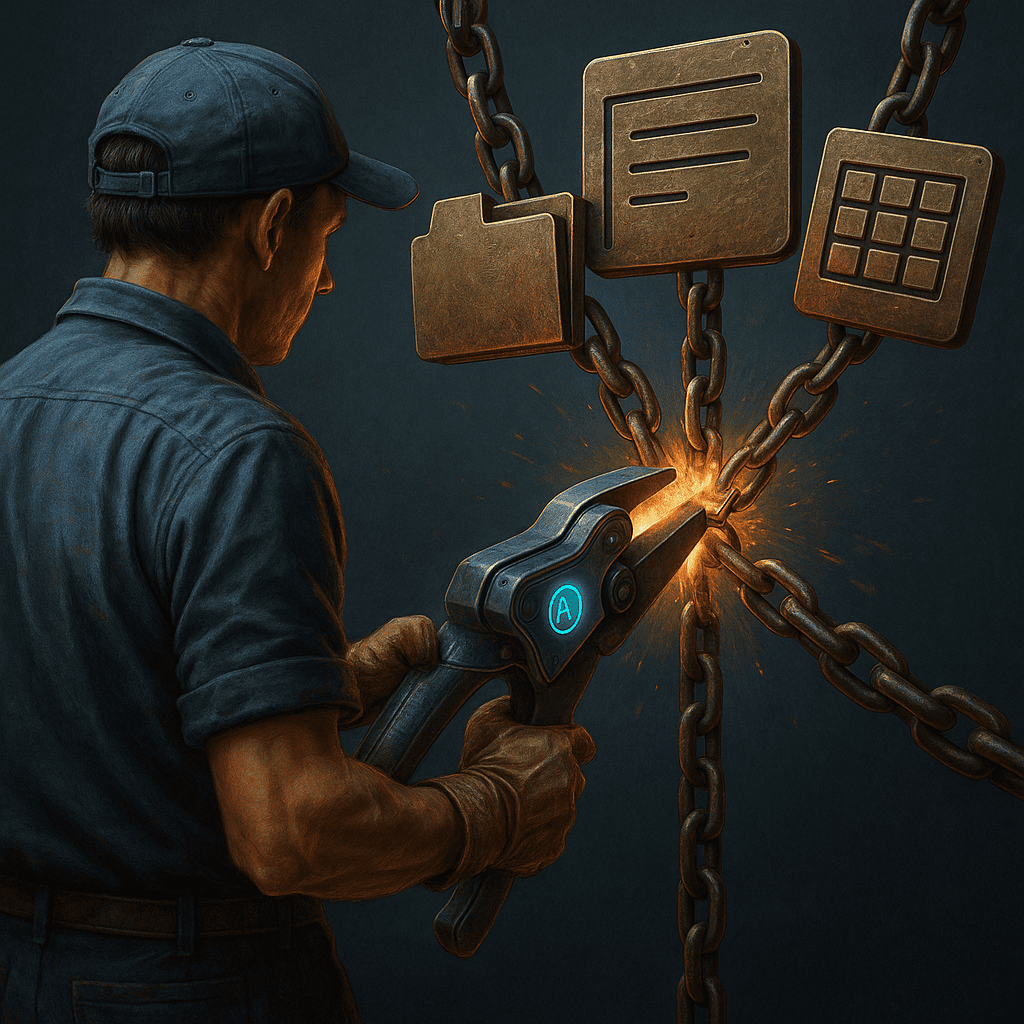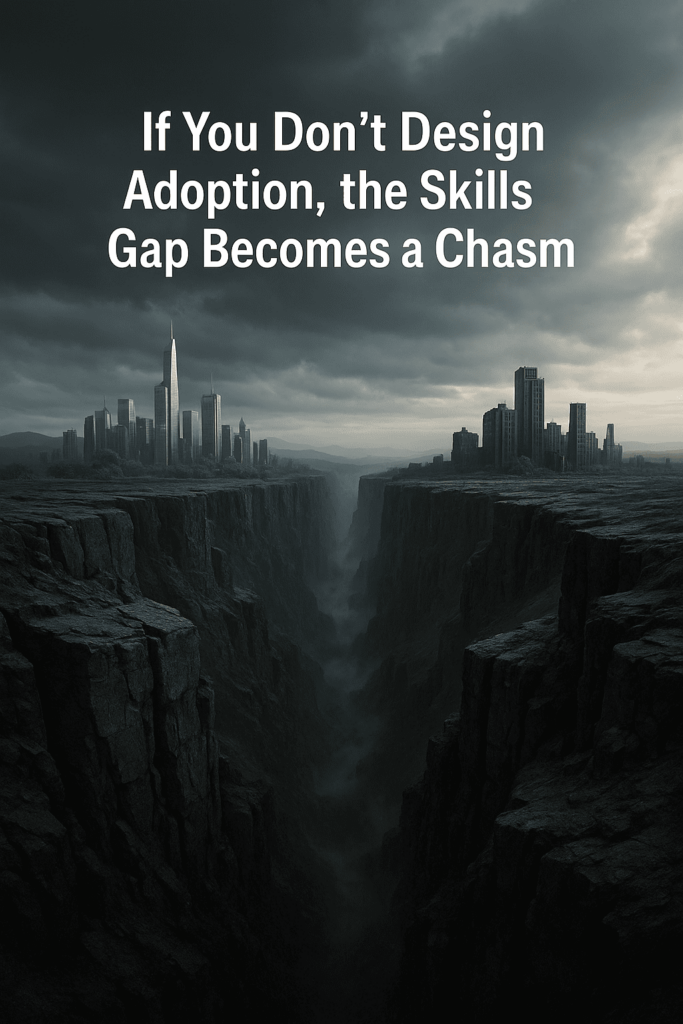
There’s one mistake we see over and over again:
Leaders think they need to train their teams on tools.
A few prompts, a few workshops, maybe a cheat sheet.
But real AI capability doesn’t come from tool fluency.
It comes from mindset fluency.
💡 Because working with AI isn’t just about knowing how to use it —
it’s about knowing when, why, and how it serves your thinking, not replaces it.
🧠 What AI-capable teams actually do differently:
- They ask better questions before jumping to automation
- They understand that not all efficiency is progress
- They co-create with machines instead of delegating blindly
- They test, reflect and improve — not just “prompt and hope”
- They make AI part of the team, not a black box in the corner
👉 The real transformation happens when AI becomes a thinking partner, not a shortcut.
🚫 What gets in the way of real upskilling?
❌ Fear of being replaced
❌ Lack of time to experiment
❌ Obsession with mastering the tool instead of exploring the use case
❌ Managers who want AI results but don’t invest in learning cycles
❌ Teams that don’t feel safe to “get it wrong”
And let’s be honest:
you can’t upskill a team you don’t trust to learn.
🛠 How to enable meaningful upskilling:
- Focus on roles, not tools — what decisions should be enhanced by AI?
- Start with low-stakes use cases where experimentation is safe
- Build shared language around what “AI-capable” looks like
- Make time for learning — don’t expect it to happen “after hours”
- Celebrate insight, not just outputs
💥 Final provocation:
What if your team doesn’t need more training…
but more permission to think, try, and adapt?
If this resonates, tag someone who’s actively building the kind of team that grows with AI — not despite it 🧠⚡.





